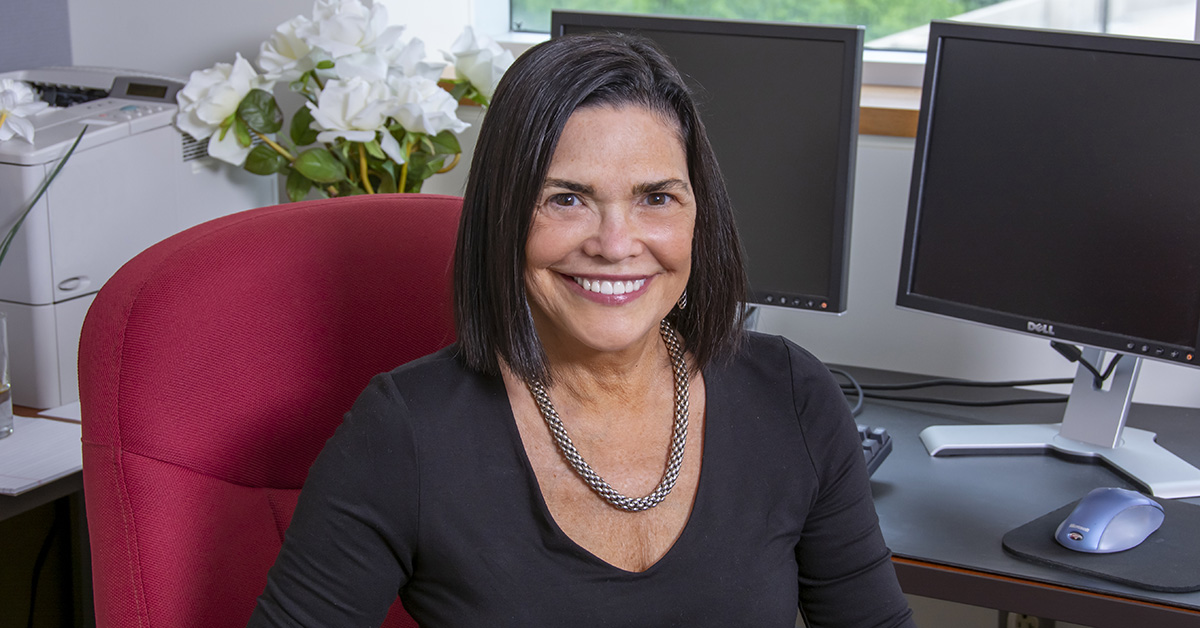
PHILADELPHIA (March 1, 2022)—Fox Chase Cancer Center’s Suzanne M. Miller, PhD, a professor in the Cancer Prevention and Control research program, has received a two-year research grant from the Prevent Cancer Foundation to support a project designed to test whether text messaging can effectively reduce urban cervical cancer disparities.
“Cervical cancer is noteworthy because it is one of the only cancers that is not only detectable early, but preventable,” Miller said. “This project focuses on the feasibility of using text messaging to reduce cervical cancer disparities among inner-city women.”
When cervical cancer is diagnosed early and appropriately treated, the likelihood of survival is close to one hundred percent, Miller said. However, only about 50% of urban, underserved women receive the recommended follow-up care, called colposcopy, after an abnormal cervical cancer screening result.
In previous research, Miller and colleagues designed an evidence-based telephone counseling intervention that improved rates of initial diagnostic colposcopy in the target population.
“We contacted patients after an abnormal Pap smear to discuss barriers to making an appointment for the follow-up colposcopy,” Miller said. “We asked them what makes it difficult to come in—anxiety, educational barriers, or practical barriers like child care or transportation—and counseled to those barriers.”
For example, if a woman said the follow-up appointment was not booked because they had no symptoms and felt fine, the health coach might discuss the fact that cervical cancer does not have symptoms early on.
“We explain that at the beginning, they would not be able to tell that anything was wrong, but by coming in for the appointment we could address any issues that might be there,” Miller said.
The telephone program was very successful, Miller added. Rates of attendance for the first colposcopy appointment went from about 50% to about 75%. “That was gratifying and exciting in terms of cancer prevention and control,” Miller said.
Unfortunately, these interventions are resource-intensive and require substantial staffing and funding. In order to adapt the program into something that clinics in these urban, underserved communities could use day to day, Miller and Erin K. Tagai, PhD, MPH, an assistant research professor in Miller’s lab, will use the grant money to adapt this successful telephone-based intervention to use text messaging. Patients who miss their scheduled colposcopy appointments will receive additional health coaching calls as well.
With this program, Miller and Tagai hope to significantly increase attendance at the first recommended follow-up after an abnormal Pap smear and thereby improve patient outcomes both in terms of early prevention and quality of life.
“We also hope to change clinical practice so that these procedures and protocols can be built in,” Miller said. “We want to move beyond what a researcher wants to accomplish, which is good patient outcomes, to providing context on how these strategies can be practically implemented into everyday patient care.”
The Prevent Cancer Foundation grant award came from the Marcia and Frank Carlucci Charitable Foundation.